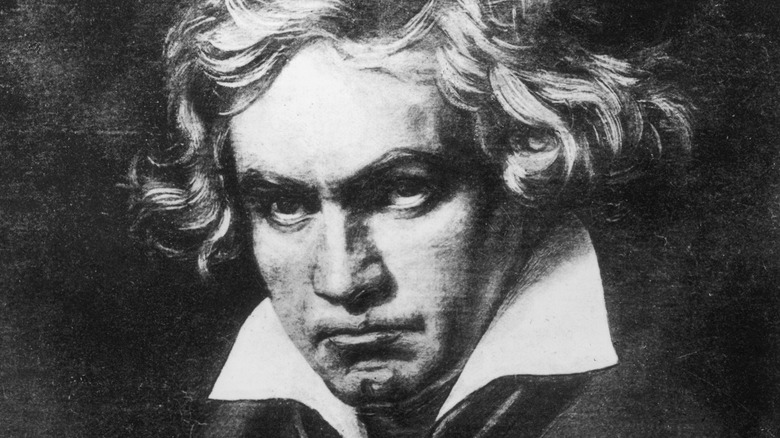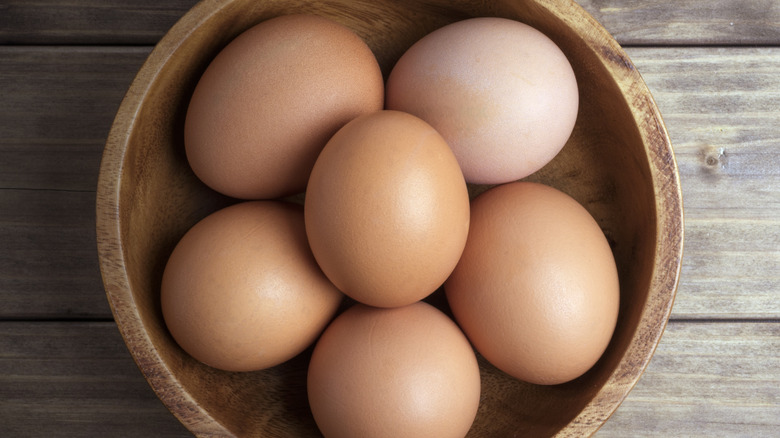One Of Beethoven's Favorite Meals Had A Very Peculiar Preparation Rule
Head to Vienna, where German-born Ludwig van Beethoven wrote music, and you can visit where he studied alongside Joseph Haydn, and where he set out to compose some of his most famous pieces. Many of his works were meaty symphonies, and this creative composition required fuel and sustenance. And, it turns out, Beethoven had plenty of preferences when it came to what he ate. However, while food was not something Beethoven particularly cared for or enjoyed, he had clear instructions as to how certain foods should be prepared and presented.
Beethoven ate pike fish, plates of an Austrian version of mac and cheese called kasnocken, and a specific combination of raw eggs and bread soup. Though the composer hired housekeepers, he largely insisted on preparing his own meals. Beethoven has been quoted explaining his closely guarded kitchen and apparent mistrust of staff: "Anyone who tells a lie has not a pure heart, and cannot make good soup."
Beethoven's choice of bread soup was not a textural marvel like a hearty serving of ribollita, a comforting bowl of French onion soup topped with cheese-coated baguette pieces, or a creamy New England clam chowder recipe scooped into a crusty bread bowl. Instead, Beethoven's soup has been described as something closer to mush. If a serving of mushy soup sounds unappealing, Beethoven also is known to have requested nearly one dozen large raw eggs to accompany this meal. Before digging into these delicacies, Beethoven conducted a careful ritual.
Beethoven's strange food habits
Before consuming the raw eggs, Beethoven would methodically inspect each one for freshness. With bare hands, he would hold them to the light, and remove the top to closely observe the gelatinous mass and smell each one. Should an egg not have passed Beethoven's scrutiny, he would loudly reprimand his house staff. Unsurprisingly, many housekeepers quit or were fired by Beethoven after a disappointing presentation or discovered foul egg.
In addition to carefully monitoring raw eggs, Beethoven would hand count 60 beans to make coffee in the mornings. Should afternoon hunger cravings strike and Beethoven give in to hunger pangs, he would snack on Italian cheese and salami. Whether his peculiar preferences were due to quirky personality traits or could be attributed to one of Beethoven's many health issues — he is known to have had digestive issues, among other ailments — isn't clear. But Beethoven's unique food orders clearly helped him create music which is appreciated around 200 years later without us needing to require only honest people to make mushy soup or inspect raw eggs.

